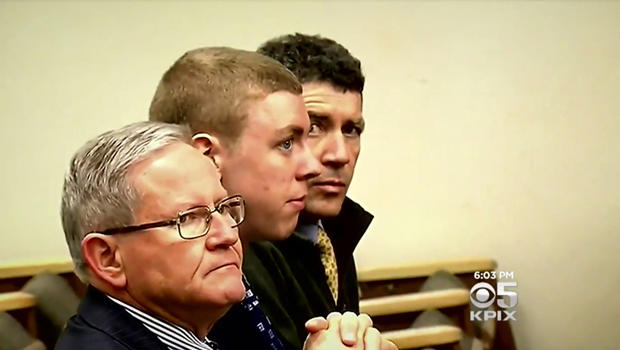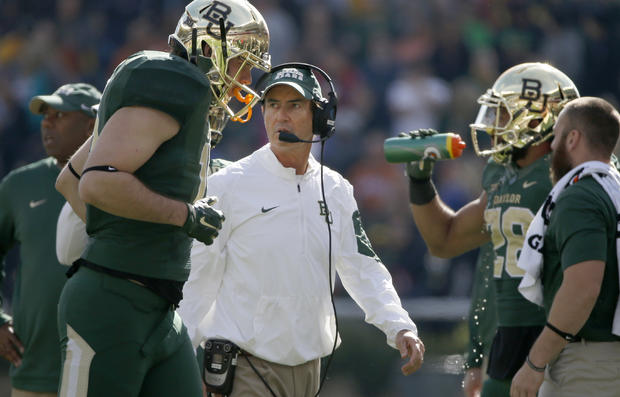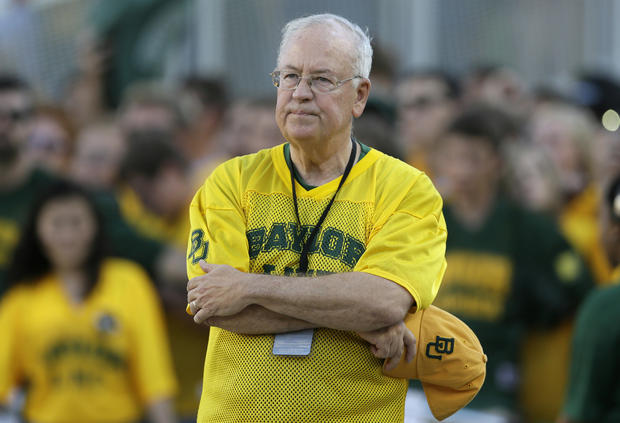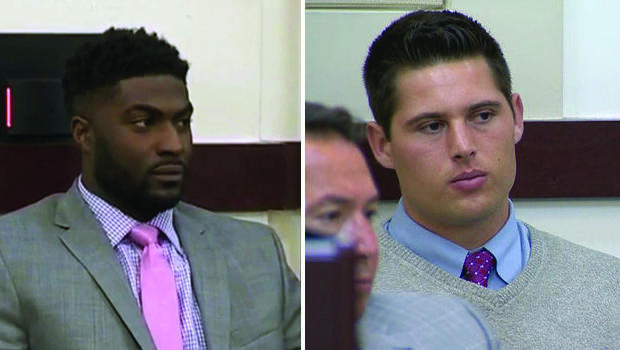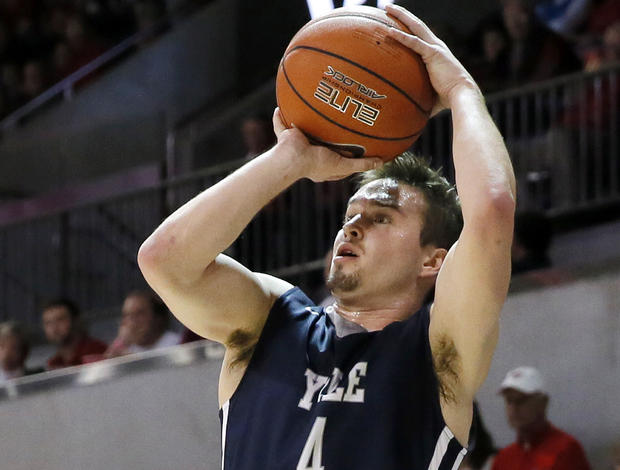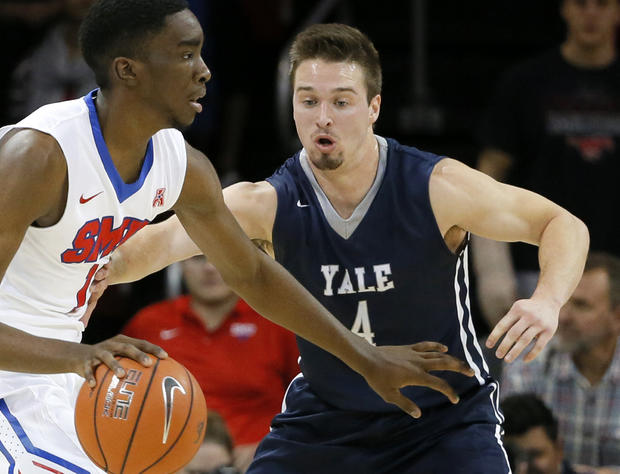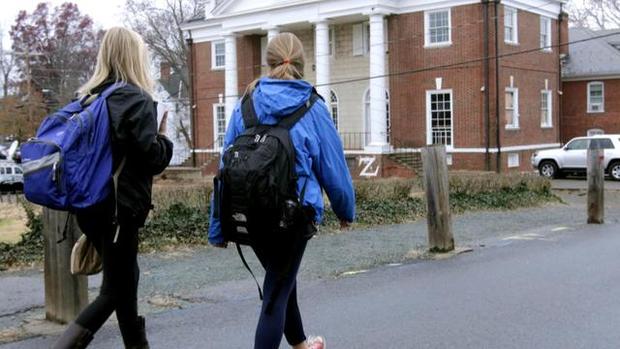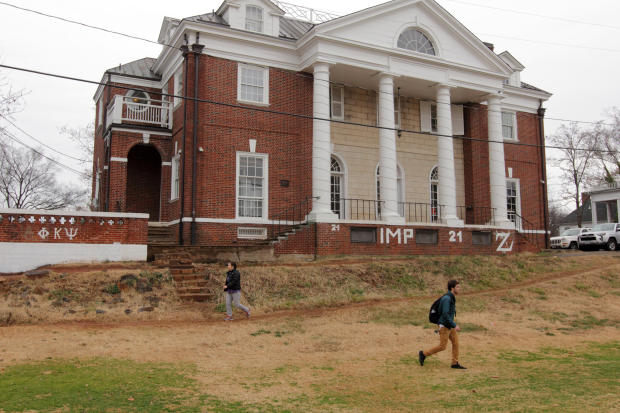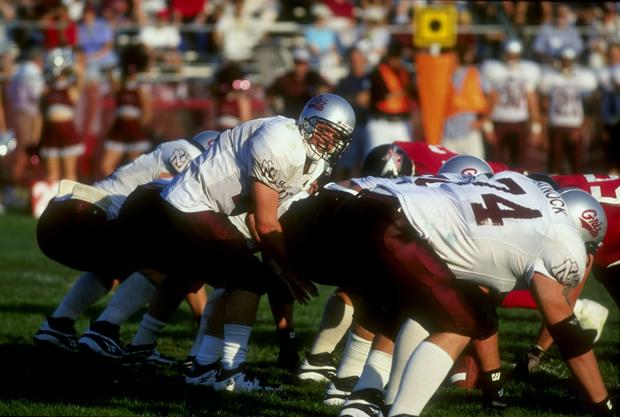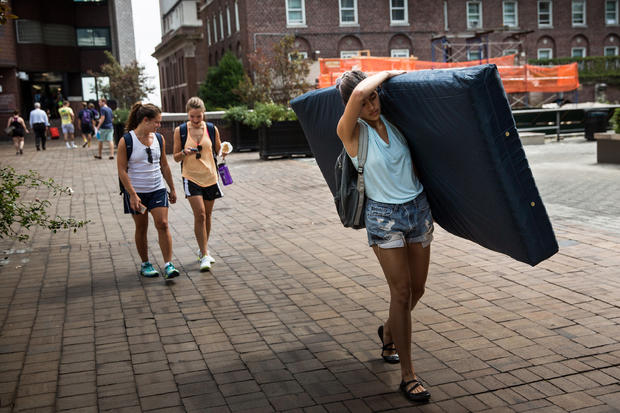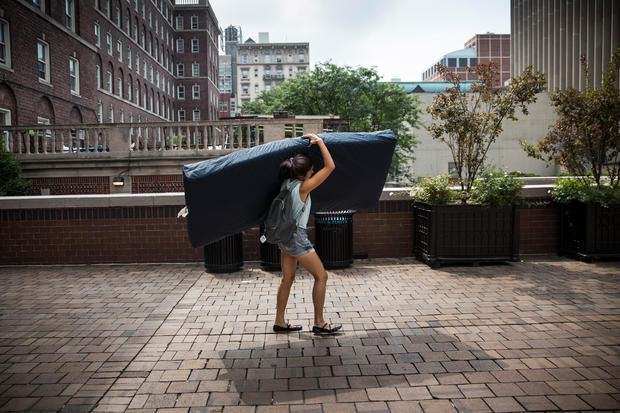College sex assault scandals
Nearly 100 colleges and universities saw at least 10 reports of rape on their campuses in 2014, according to a recent Washington Post analysis of federal crime data. And that finding deals only with reported assaults. Stories of campus rape reach far and wide, with 1 out of 5 women saying they were violated at some point during their college careers.
But even within this sea of horrific data, there are situations that provoke even more outrage -- administrations allegedly looking the other way, or judges handing down sentences that spark a national uproar. Those stories ultimately morphed into something even greater than the troubling sums of their parts.
Stanford sexual assault case
In January 2015, Stanford University swim team member Brock Allen Turner was charged with sexually assaulting an unconscious, intoxicated woman outside a fraternity. He was discovered by two Swedish students passing by on bicycles. According to those witnesses, Turner ran away when they approached.
Stanford sentence
Turner was convicted on three counts and could've been sentenced to 14 years in prison for his crime, but despite an impassioned letter by the victim during the sentencing ("You took away my worth, my privacy, my energy, my time, my safety, my intimacy, my confidence, my own voice," she wrote) Turner received only six months. He must also register as a sex offender for the rest of his life.
Stanford case: Embattled judge
Hundreds of thousands took to the internet to protest the sentence, posting responses across social media. More than a million people signed a Change.org petition calling for Judge Aaron Persky, who presided over the case, to be removed from the bench.
Stanford case: Judge keeps seat
Judge Persky was up for re-election in June 2016. With no challengers for the position, he was elected for another six-year term.
Baylor: Looking the other way
Texas' Baylor University has been plagued by allegations of rape and sexual assault, with at least six women accusing eight Baylor football players of violence in recent years. An inquiry commissioned by the school found that Baylor "failed to take appropriate action to respond to reports of sexual assault," and that administrators discouraged women from filing complaints and retaliated against one who did. "Football was above all rules," said report by the law firm Pepper Hamilton.
Baylor: Campus assaults
Baylor football player Tevin Elliott was sentenced to 20 years in prison for two counts of sexual assault and fellow player Sam Ukwuachu was convicted of rape. Another team member, Shawn Oakman, was arrested and is being investigated on similar allegations. No charges had been filed as of June 10, 2016.
Baylor: Administrators dismissed
Following the Pepper Hamilton report, football coach Art Briles was fired; school president Ken Starr (seen here), known for his investigation of the Monica Lewinsky scandal, was demoted to chancellor and ultimately resigned; and athletic director Ian McCaw was put on probation and ultimately resigned.
Vanderbilt: Videotaped rape
In April 2016, former Vanderbilt football player Cory Batey (pictured left) was found guilty of raping an unconscious female student in a dorm in 2013. In June 2016, his teammate Brandon Vandenburg (pictured right) was convicted of five counts of aggravated rape, two counts of aggravated sexual battery and one count of unlawful photography for the same assault. Two other former football players are facing charges for the assault.
Vanderbilt: Bystanders do nothing
Numerous bystanders who witnessed the rape - either by receiving the footage or being in the room while it was happening - reportedly did nothing to stop the attack. Other witnesses allegedly saw the unconscious victim lying outside a dorm room afterward, but also took no action.
Vanderbilt officials contacted local police after dorm surveillance footage showed players carrying an unconscious woman.
As of June 2016, some of the student bystanders faced criminal charges of their own.
U. of Tennessee: Deliberate indifference?
In early 2016, a group of women filed suit against the University of Tennessee, alleging the school deliberately failed to take action against several football players and a baseball player accused of sexual assault. They said the school purposely delayed investigations until the players were transferred or had graduated.
U. of Tennessee: Beating allegations
According to the suit, Tennessee football players even threatened and beat a teammate who tried to help an alleged assault victim. Drae Bowles, the player who drove the woman to a hospital, later said he was struck by Curt Maggot (pictured at left with fellow player Marlon Walls) and was told by coach Butch Jones that he'd betrayed the team.
In July 2016, UT reached a $2.48 million settlement with the young women, a sum that includes their attorney fees. An independent commission will also review responses to sexual assault at all UT campuses. The school did not admit to any "guilt, negligence or unlawful acts" under the terms of the settlement.
Yale sexual assault
In February 2016, Yale basketball captain Jack Montague was expelled from the school following an investigation of sex assault allegations brought to the University-Wide Committee on Sexual Misconduct.
He was allegedly expelled for unwanted contact during a fourth sexual encounter with an unnamed female student. The student told a Title XI coordinator, who was then obligated to notify the proper school authorities.
Yale lawsuit
In June 2016, Montague filed a lawsuit against Yale, accusing the school of wrongfully expelling him over the allegation. A statement released by Montague's lawyers said the woman in question didn't want to launch formal university proceedings, accusing Yale of manipulating her into participating in the process.
"Only about one out of 10 cases ends in expulsion and the decision to expel a student is made only after the most careful consideration, based on the facts and, when appropriate, disciplinary history," said the school in a statement following issued in March, after Montague signaled his intention to sue.
University of Virginia: “Jackie’s” story
In November 2014, Rolling Stone magazine published a story of the alleged gang rape of a woman known only as "Jackie," a freshman at the University of Virginia. Jackie told reporter Sabrina Erdely she'd been raped by members of the Phi Kappa Psi fraternity as part of an initiation ritual. But after questions were raised by other reporters, Rolling Stone wound up retracting the story and apologizing.
University of Virginia: "Jackie" unravels
When journalists outside of Rolling Stone looked into the story, they found discrepancies in Jackie's account. Subsequent investigations concluded that the rape story was fabricated by the subject. The Columbia Journalism Review called the story the winner of that year's "media-fail sweepstakes."
University of Virginia: The lawsuits
On April 5, 2015, Rolling Stone formally retracted the story and published the results of an investigation by the Columbia University School of Journalism, which said the magazine failed to fact-check and relied too heavily on Jackie's account. UVA associate dean Nicole Eramo, Phi Kappa Psi and various fraternity members have filed lawsuits against Erdely and the magazine.
U. of Montana: Series of assaults?
Between 2009 and 2012, the University of Montana saw a series of sexual assault reports filed against several of the school's football players. A May 2012 investigation by the Justice Department's Civil Rights Division and the Department of Education's Office of Civil Rights concluded that campus police did not believe complainants, and discouraged them from stepping forward.
U. of Montana: The verdicts
Assault cases at Montana include football player Beau Donaldson, convicted in 2012. Several other alleged attacks were never prosecuted, or the accused assailants were acquitted.
U. of Montana: Rapes exposed
In 2015, author Jon Krakauer chronicled these stories and others in his book "Missoula: Rape and the Justice System in a College Town."
"When an individual is raped in this country," said Krakauer in the book, "more than 90 percent of the time, the rapist gets away with the crime."
Columbia U.: Mattress protest
In September of 2014, Columbia University student Emma Sulkowicz began carrying a mattress around campus as a gesture of protest the university's handling of her alleged rape. She meant to carry "the weight of what happened there," she said. School hearings had found the man she accused of the attack not guilty. She appealed, but the dean would not overturn the decision.
Columbia U.: Hillary's response
Sulkowicz' story made the news, with the student being profiled in New York Magazine and Hillary Clinton saying of the project, "That image should haunt all of us."


